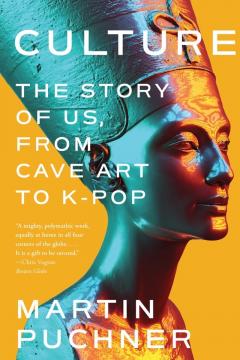What good are the arts? Why should we care about the past? For millennia, humanity has sought to understand and transmit to future generations not just the "know-how" of life, but the "know-why"--the meaning and purpose of our existence, as expressed in art, architecture, religion, and philosophy. This crucial passing down of knowledge has required the radical integration of insights from the past and from other cultures. In Culture, acclaimed author, professor, and public intellectual Martin Puchner takes us on a breakneck tour through pivotal moments in world history, providing a global introduction to the arts and humanities in one engaging volume.
From Nefertiti's lost city to the plays of Wole Soyinka; from the theaters of ancient Greece to Chinese travel journals to Arab and Aztec libraries; from a South Asian statuette found at Pompeii to a time capsule left behind on the Moon, Puchner tells the gripping story of human achievement through our collective losses and rediscoveries, power plays and heroic journeys, innovations, imitations, and appropriations. More than a work of history, Culture is an archive of humanity's most monumental junctures and a guidebook for the future of us humans as a creative species. Witty, erudite, and full of wonder, Puchner argues that the humanities are (and always have been) essential to the transmission of knowledge that drives the efforts of human civilization.








